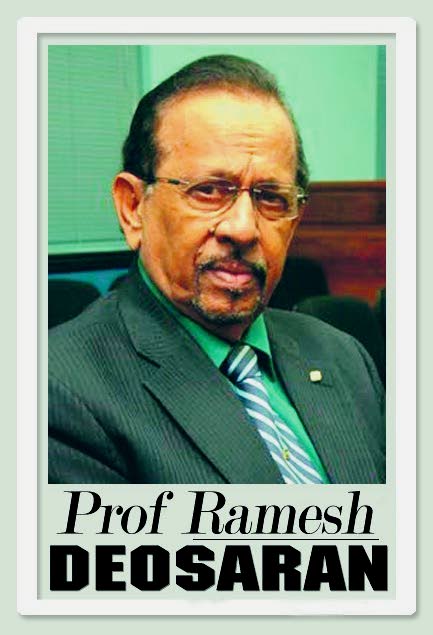Hypocrisy in our politics

As the election comes closer, we should note the hard political fact that ethnic voting is the foundation of our electoral system, never mind the perpetual rhetoric, hopes and the 1986 NAR promise.
The ethnic strain on the NAR pendulum became too severe. It quickly reverted to the natural form of our electoral system, leaving open the question: why is our political system so unnatural to the country’s natural political base superficially managed by the PNM and UNC?
Of course, there are socio-economic and political issues, but generally, ethnicity (eg race and religion) casts a shadow over these.
Just look at the ethnicity between the right and left sides of our elected Lower House of Parliament. Constituency-builder as he might be, Dr Roodal Moonilal would not be put to fight in Laventille. Mr Fitzgerald Hinds would not be put in Caroni Central.
Clarence Rambharat going up in Chaguanas East did raise some eyebrows. Or, put in a big-picture way, political candidates are generally placed to match the demographics of the target constituency. This includes the “safe seat” principle.
Some countries face the ethnic fact by opting for modified forms of political representation, proportional representation for example.
However, political leaders here dare not publicly admit their struggles to deal with the ethnic factor in allocating candidates. Political correctness rules – a sort of "spider and the fly" game.That is why, too, the five "mixed-race" marginal seats give the parties so much trouble. Ethnic voting is in doubt. Party leaders earnestly call for ethnic unity, but in private caucus the ethnic dilemma is how to get around or utilise ethnicity. This is what helps to make hypocrisy in our politics, without admitting that we already have a disguised, bastardised form of proportional representation.
Look at the demographics of the various constituencies and the ethnicity of the representatives. Look at the results of local government and general elections. We have to find a way to shed this hypocrisy and legitimise the natural desires of the population. The Wooding Commission tried. The ONR died. Results from our first-past-the-post system unwittingly create a cycle of political vengeance.
Matters get worse when our political parties are yet to demonstrate any kind of political or economic philosophy so as to give voters a rational basis to choose. The confused electorate faces a set of pretty manifestos filled with cat-in-bag promises. A 2015 manifesto carried a glossy bullet-train picture, promising to ease the East-West Corridor traffic. Surely, many voted for this only to find, a month after the election, no train coming.
Such experiences demoralise citizens, pushing them into the only thing they feel secure about – vote by ethnic identity. Cost estimates and funding should also be included alongside manifesto promises. Let’s have some honest politics now. End cat-in-bag manifestos.
For such reasons, this column used an opportunity in October 10, 2018 to help the PNM and UNC rationalise their existence. Numerous NGOs and unions were then opposed to the PNM government on the Petrotrin issue.
I wrote: “What do you say when there is a ‘common foe’ (PNM, 23 seats) opposed by a growing number of disgruntled interest groups constellating around a politically-charged national issue (Petrotrin)? And in the centre is the open-door Opposition United National Congress (UNC, 18 seats)? Would an ‘agreement’ evolve to form an alliance of these ‘separate parties,’ led by Ancel Roget’s Oilfield Workers Trade Union (OWTU) partnering with the UNC led by Kamla Persad-Bissessar?
“At the closing of Petrotrin, Roget said: ‘Fasten your seatbelts, the country is in for a rough ride. The issue is more than Petrotrin, it’s also about government failures in crime, education, health, labour and the economy.’ To help battle this growing challenge and appreciating the current political mood, the incumbent PNM must rest its case on tough financial discipline for other state companies.”
I continued: “Facing some insider challenges herself, Persad-Bissessar may well divest some MPs to accommodate competent members from the alliance. With the ‘working-class forces’ moving towards an alliance around the UNC and the PNM maintaining its urban, middle class support we may well have a class-driven election in 2020.”
Such rationalised party politics, I am afraid, remains buried in the hypocrisy of our politics.

Comments
"Hypocrisy in our politics"